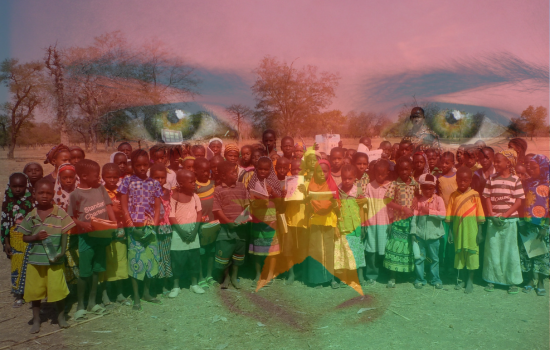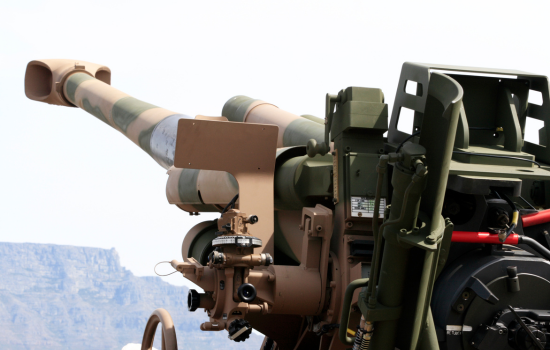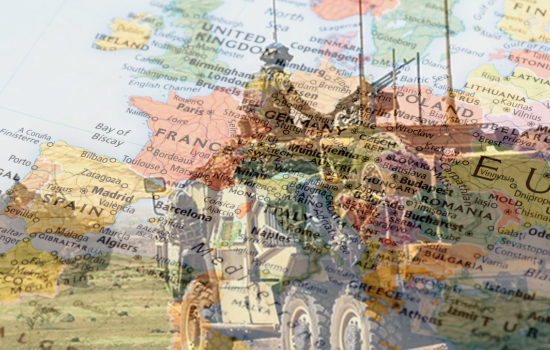Ticking Bomb: Has the countdown to nuclear terrorism already begun?
The clock is ticking. The handwriting is on the wall, the evidence is clear; no mystical clairvoyant capabilities are needed to see the future. No amount of wishful thinking or “politically correct” apologetics is going to change what is rapidly becoming an inevitable and obvious fact of our lives. The free and democratic countries of the world are in serious danger.
If anybody still had the notion that Islamic terror was only a political cause with a misguided emphasis on limited violence to achieve an otherwise worthy goal, the global carnage perpetrated in the name of Islam since 9-11 should have disabused them of such a notion. Whoever still believed that only “Zionism and its supporters” were the targets of the Islamists should draw the appropriate conclusions from the recent terror attack at a school in Beslan, Russia. The cruel images of that event, with its sadistic barbarism towards helpless children, not only highlighted the international and borderless nature of Islamic terror, but also demonstrated the scope of its evil and the total lack of humanity that characterizes its perpetrators.
The Beslan atrocity showed that there are no “red lines” for Islamic terror; it is limited only by what it is capable of accomplishing, not by normal civilized constraints or human emotions. If the means are available, no magnitude of destruction and death is “too much” to joyfully carry out.
This is truly a clash between two views of reality, two concepts of civilization, two different worlds – “theirs” and “ours”. No amount of understanding, negotiations, concessions, or rationalization will bridge this gap. “They” consider themselves to be in a total existential war against “us”, one in which anything and everything is legitimate, no matter the degree of horror, number of dead women and children, “collateral” damage, or immorality (as “we” understand the term). If it hurts “us”, it is virtuous. If it contributes to “our” ultimate physical extermination, it is “their” obligation to pursue it. Their concept of victory is directly related to the amount of mass slaughter they can succeed in causing – the more blood, gore, death and maiming, the greater their victory. They are unfettered by national ties, geographical boundaries, or the normal inhibitions of human values that the free world takes for granted, nor by Geneva Conventions or other conventional “rules of the game”, and they are constantly planning how to best carry out bigger and “better” atrocities.
As these terror organizations turn the entire world into a battlefield, it is time to wake up and view this new reality with a clear understanding of where it is headed, and of what its ultimate implications could really be for the free world. In June of this year, the head of the International Atomic Energy Agency, Mohammed ElBaradei, referred to the imminent danger of nuclear materials falling into the hands of these organizations. In a monumental understatement, he said “We are actually having a race against time which I don’t think we can afford”. [1]
In a recent speech, the Vice President of the United States, Dick Cheney, discussed the lessons that the American administration has learned since 9-11. He said that
the terrorists were trying very hard to acquire deadlier capabilities than anything they had used to date. We know from having interrogated people that were captured, we know from training materials we found, manuals and so forth, that they are trying very hard to acquire chemical or biological weapons, or even a nuclear weapon if they can. And the ultimate threat we face today as a nation is the possibility that at some point one of those terrorist cells, a small group of terrorists, ends up in the middle of one our cities with that kind of deadly capability, and then the lives of Americans put at risk wouldn’t be just a few thousand, but, indeed, might be even hundreds of thousands. That’s the ultimate threat we face today as a nation.
The Vice President went on to discuss the need for a new strategy. Referring to the mutual deterrence doctrine that characterized the Cold War, he stated that “with respect to the al Qaeda organization, or to a terrorist who is committed to jihad, who is out to kill infidels and is prepared to sacrifice their life in the process, the whole notion of deterrence is meaningless. There isn’t anything they value highly enough that you can put at risk that would lead them to decide they wanted to change their policy.”[2]
In the same vein, Graham Allison – Professor of Government and Director of the Belfer Center for Science and International Affairs at Harvard University’s Kennedy School of Government (and former U.S. Assistant Secretary of Defense) – had this to say in a recent issue of Foreign Affairs magazine:
President George W. Bush has singled out terrorist nuclear attacks on the United States as the defining threat the nation will face in the foreseeable future. In addressing this specter, he has asserted that Americans’ ‘highest priority is to keep terrorists from acquiring weapons of mass destruction.’ So far, however, his words have not been matched by deeds. The Bush administration has yet to develop a coherent strategy for combating the threat of nuclear terror. Although it has made progress on some fronts, Washington has failed to take scores of specific actions that would measurably reduce the risk to the country. Unless it changes course – and fast – a nuclear terrorist attack on the United States will be more likely than not in the decade ahead.
Allison went on to state that prior to September 11, 2001, many experts argued that terrorists were unlikely to kill large numbers of people, because they sought not to maximize victims but to win publicity and sympathy for their causes. After the attacks on the Pentagon and the World Trade Center, however, few would disagree with President Bush’s warning that if al Qaeda gets nuclear weapons, it will use them against the United States “in a heartbeat.” Indeed, Osama bin Laden’s press spokesman, Sulaiman Abu Ghaith, has announced that the group aspires “to kill 4 million Americans, including 1 million children” in response to casualties supposedly inflicted on Muslims by the United States and Israel”.[3]
New York Times columnist Nicholas D. Kristof calls Professor Allison’s book “Nuclear Terrorism,” a “terrifying new book”. In an article discussing the possibility of nuclear terror on American soil, Kristof describes the following scenario, taken from Allison’s book:
If a 10-kiloton nuclear weapon, a midget even smaller than the one that destroyed Hiroshima, exploded in Times Square, the fireball would reach tens of millions of degrees Fahrenheit. It would vaporize or destroy the theater district, Madison Square Garden, the Empire State Building, Grand Central Terminal and Carnegie Hall (along with me and my building). The blast would partly destroy a much larger area, including the United Nations. On a weekday, some 500,000 people would be killed.[4]
Kristof also refers to the recent annual meeting of The Aspen Strategy Group, which focused on nuclear risks and concluded that the “danger of nuclear terrorism is greater than the public believes, and our government hasn’t done nearly enough to reduce it.” He quotes William Perry, the former U.S. Secretary of Defense, as saying that “there is an even chance of a nuclear terror strike within this decade – that is, in the next six years. We’re racing toward unprecedented catastrophe. This is preventable, but we’re not doing the things that could prevent it.” Kristof calls for increased efforts to deal with the threat of nuclear terror and concludes his article with a chilling appraisal: “The risk that a nuclear explosion will devastate an American city is greater now than it was during the cold war, and it’s growing.”
This gloomy scenario could one day become reality, and nobody can really know if that day will arrive in six months or a year from now, or in 5-10 years. If determined steps are not taken to avoid such a catastrophe, there is little doubt that the day will indeed arrive, sooner rather than later, and ground zero might not be Times Square – or not only Times Square. It could just as easily be Tel Aviv or London, or for that matter the Eiffel Tower, Moscow, or any of a hundred other “legitimate” targets of the terrorists’ choosing.
There is much that can be done to limit the chance of this “doomsday” event actually taking place, and there is no lack of knowledge or expertise regarding the steps required to prevent such a scenario from occurring. What is missing is a clear and cohesive commitment by the nations of the free world to seriously confront this threat. Countries at risk must establish high priority policies that clearly define the actions needed to combat the threat, and they must vigorously implement those policies. To deal successfully with the global war declared on them by the likes of Osama bin Laden, the free democracies of the world must unite not only in a global campaign against the phenomenon of Islamic terror, but specifically against the possibility of their obtaining and being able to use weapons of mass destruction.
All-out war by the terrorists must be met by all-out war in return. Certainly not all Muslims are terrorists, and certainly not all Muslims agree with the terrorists’ “jihad” against the “infidels”, “Crusaders”, and “Zionists”. But the stakes in this new type of global war are too high to allow us to get dangerously bogged down by excessive political correctness, or by high-minded commitments to treat these terrorists as a sociological phenomenon to be reasoned or negotiated with, as if they were rational human beings whose political “causes” should be considered as mitigating factors when dealing with them.
Only an uncompromising commitment to an aggressive and focused offensive will help prevent another 9-11, and ensure that we are never witness to the unthinkable scenario of a mushroom cloud over Manhattan or Washington D.C., or over Buckingham Palace, Dizengoff Center, or the Champs-Elysees.
References:
1. BBC World News, 21 June 2004 – https://news.bbc.co.uk/2/hi/americas/3827589.stm
2. https://www.whitehouse.gov/news/releases/2004/09/20040914-7.html
3. https://www.foreignaffairs.org/20040101faessay83107/graham-allison/how-to-stop-nuclear-terror.html
4. Nicholas D. Kristof, N.Y. Times, August 11, 2004






